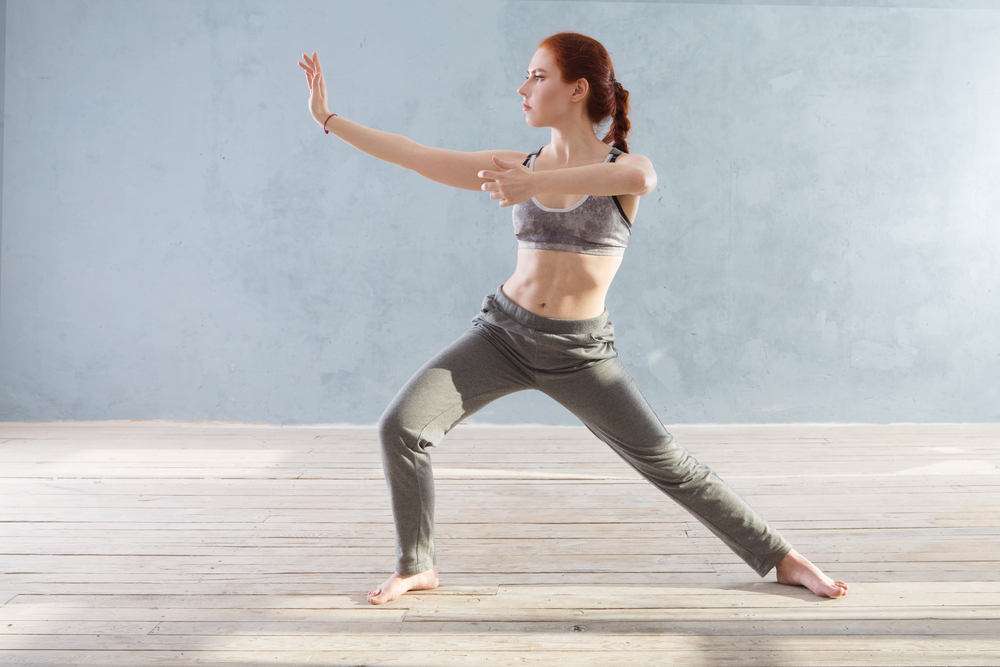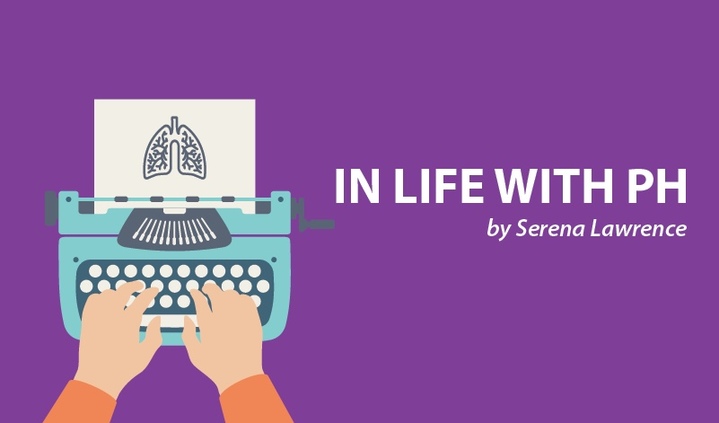My Experience Practicing Qi Gong with Pulmonary Hypertension
Written by |


It can be challenging to find an exercise routine when living with pulmonary hypertension (PH). This is partly because each individual with PH is unique, and the disease impacts everyone differently. Some individuals living with PH may still be able to be quite active, while others are more limited by their condition.
A few months ago, I felt as if my wellness routine was missing something. Although I have my own exercise and meditation routine that I follow, I wanted to incorporate something that felt a little more holistic. It was then that I discovered qi gong.
What is qi gong?
Qi gong (pronounced chee-gong) is a mind-body exercise composed of a combination of repeated movements. These gentle movements focus on breathing, motion, and meditation. They are often low-impact and slow, making it more accessible to those who have a difficult time with traditional high-impact workout routines.
Benefits of qi gong
The benefits of qi gong vary from helping to improve range of motion, to working as an effective way to help manage anxiety. Regular practice has been shown to lower stress hormone levels and can enhance nervous system activity. Some studies have also found that qi gong can help promote heart health and even reduce pain. Qi gong may also help promote bone health, improve physical function, prevent falls, and improve balance. Because of its meditation element, qi gong may also help with depression.
Qi gong and PH
Although there is limited information on whether qi gong could help improve the lives of those living with pulmonary hypertension, I think some of the research available sounds promising.
For example, a study found that qi gong practiced by individuals with COPD helped promote functional capacity. The study also concluded that qi gong could be used as an at-home exercise program for older adults with COPD who required rehabilitation. Another study showed that qi gong may also help improve respiratory function in those living with COPD.
There have been a few studies about the effects of qi gong in cancer patients. In a study titled, “Health benefits of qi gong or tai chi for cancer patients: a systematic review and meta-analyses,” qi gong had a positive impact on the fatigue and cortisol level of cancer patients, along with improved immune function. But because of the size of this study, more information is needed to confirm the effects of qi gong on cancer patients.
Lastly, a Chinese study published in the Journal of the American Heart Association (JAHA) found that traditional Chinese exercises could be beneficial for cardiovascular diseases. A summary of the JAHA study published on Yahoo! News said, “The data showed that for individuals with cardiovascular disease, practicing traditional Chinese exercise such as tai chi, baduanjin and qi gong helped to reduce systolic blood pressure ― which measures the pressure in the arteries when the heart muscle is contracting ― by more than 9.12 mm Hg on average. And diastolic blood pressure ― which measures the pressure in the arteries when the heart muscle is resting ― was reduced by more than 5 mm Hg on average. The team believes that the results of their meta-analysis on blood pressure suggest that traditional Chinese exercise could help to lower the risk of stroke by up to 41% and coronary heart disease by up to 22%.”
Why qi gong?
I personally enjoy practicing qi gong because it focuses on the well-being of the entire body. My mind easily gets distracted whenever I work out or meditate. Qi gong requires that I am focused on my breathing, movements, and meditative thoughts during its practice. Because the practice is so physically and mentally demanding, it is hard for me to dwell on any other thoughts.
Because qi gong is extremely low-impact, I incorporate it into my regular fitness routine. I think of it as being a part of my “well-being” routine. But because the movements are so fluid and gentle, I find that I can manage to do qi gong on days when I can’t find the strength or energy to do much else.
I’ve been practicing qi gong for several months now, and although I am not sure if it has had an impact on my physical health, it has helped to keep me active and has been an excellent source of stress management.
Here are some of my favorite qi gong routines I like to practice:
- 2o Minute Morning Qi Gong Exercise by Lee Holden
- Qi Gong 10 min Evening Exercise by Lee Holden
- Qigong to Circulate Your Energy by YOQI
- Qigong MOOD LIFTER by YOQI
It is important to talk to your healthcare provider before starting a new exercise routine. Be sure to ask if qi gong is safe for you.
***
Note: Pulmonary Hypertension News is strictly a news and information website about the disease. It does not provide medical advice, diagnosis, or treatment. This content is not intended to be a substitute for professional medical advice, diagnosis, or treatment. Always seek the advice of your physician or other qualified health provider with any questions you may have regarding a medical condition. Never disregard professional medical advice or delay in seeking it because of something you have read on this website. The opinions expressed in this column are not those of Pulmonary Hypertension News or its parent company, Bionews Services, and are intended to spark discussion about issues pertaining to pulmonary hypertension.




DJ
Thank you for sharing your practice. I've been doing yoga for about 2 years now and even though I'm not sure how it affects my disease, I feel so much more alive since I started doing it. I'm also doing Tai Chi from time to time, but for now, I enjoy more yoga.
I always wanted to try some Qi Gong so I just did thanks to you. I tried Lee Holden's 10 minute routines and it was great. I think I'll try some more.
I think it's very important to have a holistic approach to PAH and I'm a bit disappointed that doctors usually don't care to advise on diet, exercises, etc. After all, if we have to live with this disease, we better make the most out of it.
Serena Lawrence
Hi Dj,
I am so pleased to hear that you enjoyed trying qi gong. Lee Holden has some great videos available, especially if you are looking for a quick routine :)
I agree. Our well-being can go beyond just physical health, which is why I find it so important to find routines that can help with my overall being. I hope to see a larger incorporation of holistic approaches intergraded into PH care, the same way we have started to see it be applied in cancer care.
Warm regards,
Serena
Dr Janice Tucker
Hi Serena, I was delighted to read about how much you enjoy Qigong. I’m a Chinese Medicine and Qigong practitioner based in Ireland and thought you might like to try the free 3 part series of Qigong lessons on my website www.spacetorelax.com. Please also check out my video blog on the website too which links to lots of YouTube videos with Qigong tips and info. If you have any questions please do not hesitate to contact me and I’ll be delighted to help. 😊
Exercise To Heal
Great article, Serena!
We're happy to hear your qi gong practice is helping with your stress levels. I just know it will have a positive impact on your physical health, as well!
For more wonderful Lee Holden routines, visit our website at www.exercisetoheal.com.
Many blessings,
Exercise To Heal Team